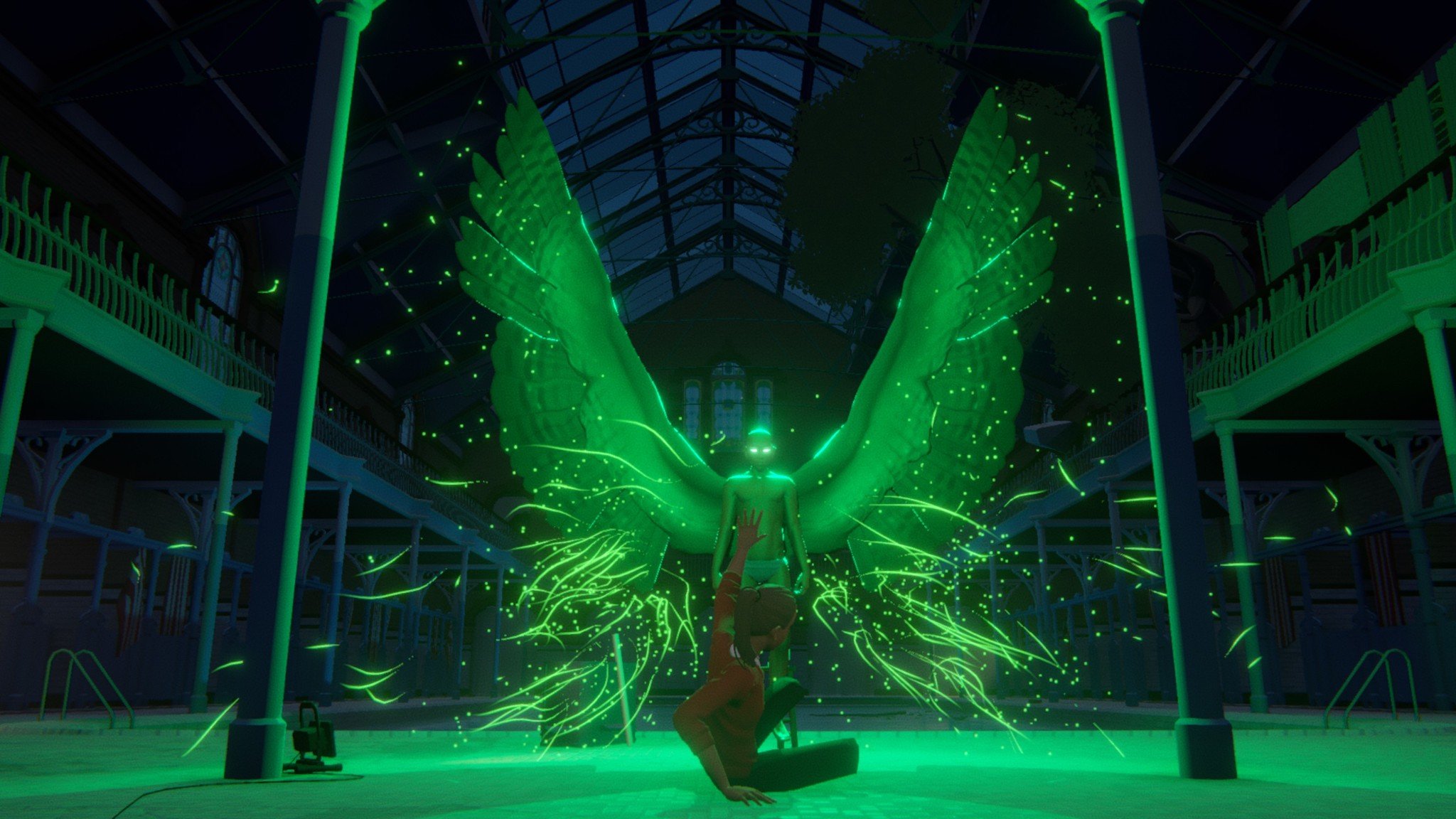If you had the power to change your life drastically, but put other people in harm's way, would you do it? That's the ultimate question that Last Stop, the newest game from indie studio Variable State and published by Annapurna Interactive seeks to answer. However, to get there you have to go through three very different but slightly interconnected stories about modernity, relationships, work culture, and more with a paranormal twist.
It might sound like a lot, and it is. Compared to Virginia, the studio's previous game, Last Stop, which is coming to all platforms including Xbox Game Pass, is a massive evolution. It has spoken dialogue and voice acting, is much longer at around five hours, has a cleaner art style, and tells three stories instead of just one. Variable State wanted to swing for greater heights with Last Stop, but it doesn't always fully reach them thanks to a few missed opportunities.
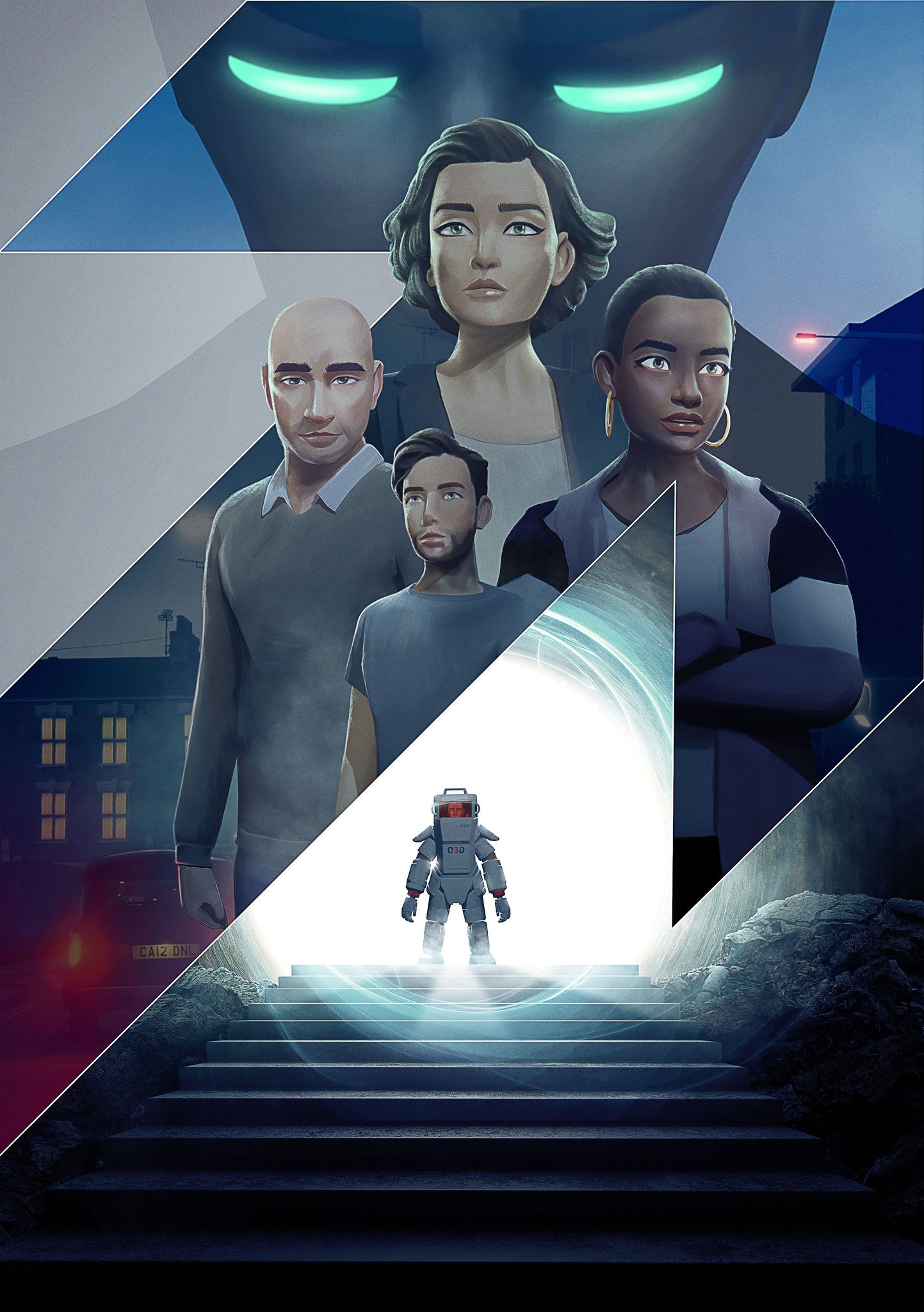
Bottom line: Last Stop takes a lot of risks, and for the most part, it succeeds. It's a game about interconnectivity in a modern world, but a few flaws keep it from rising to the heights it wants to.
Pros
- Three very different stories with diverse characters
- Fun minigames break up the monotony
- Larger, interesting mythology at play
- Great sense of humor with smart dialogue
Cons
- Sometimes choices don't align with reality
- Voice acting is stilted
- Animation can get janky
Last Stop: What I liked
Last Stop begins in a subway station in 1982. Two teenagers have stolen a policeman's hat and are running away through the tunnels. They go through enough maintenance access doors and come across a man in a brown suit, who tells them they're late. The man opens the door behind him, and a bright, green light overwhelms the two teens. The girl, Samantha, walks through the doorway and disappears. Peter, the boy, stays behind.
| Category | GameNameXXX |
|---|---|
| Title | Last Stop |
| Developer | Variable State |
| Publisher | Annapurna Interactive |
| Genre | Adventure |
| Minimum requirements | Windows 7 Intel Core i3-2100 / AMD Phenom II X4 965 4GB RAM NVIDIA GeForce GTX 650 / AMD Radeon R7 250 |
| Game size | 7GB |
| Play time | 5-6 hours |
| Players | Singleplayer |
| Launch price | $25 |
Like in the studio's first game, Virginia, Last Stop works to interject a sense of uncanniness and unease off the bat. The difference is that Virginia was a more streamlined affair, while Last Stop feels like a more complicated, but natural evolution. In Virginia, your character walked from scene to scene, with certain actions triggering the move to the next. There was no dialogue; instead, you were brought forward by a sweeping score, body language, and walking interspersed with quick transitions to represent movement. At its heart, Virginia is a mystery best described as what happens when Twin Peaks meets The X-Files. The sort-of spooky vibes came from how the game ushered you along, hopping from offices to long shots of trees and small town Americana. It felt almost dream-like.
That's not the case with Last Stop. Instead of long glances and waving, Variable State's newer title features fully fledged dialogue. It still features the same bright, blocky art style, but the characters are smoother and rounder. It's still a game where the main interaction involves walking from scene to scene, being led towards certain areas and moving through transitions, but now the studio has added dialogue trees, giving you some degree of control over how the characters interact, along with minigames that let you occasionally mess around in the environment. Instead of just one story being told, it's now three, which all come together in the end for a flashy finale.
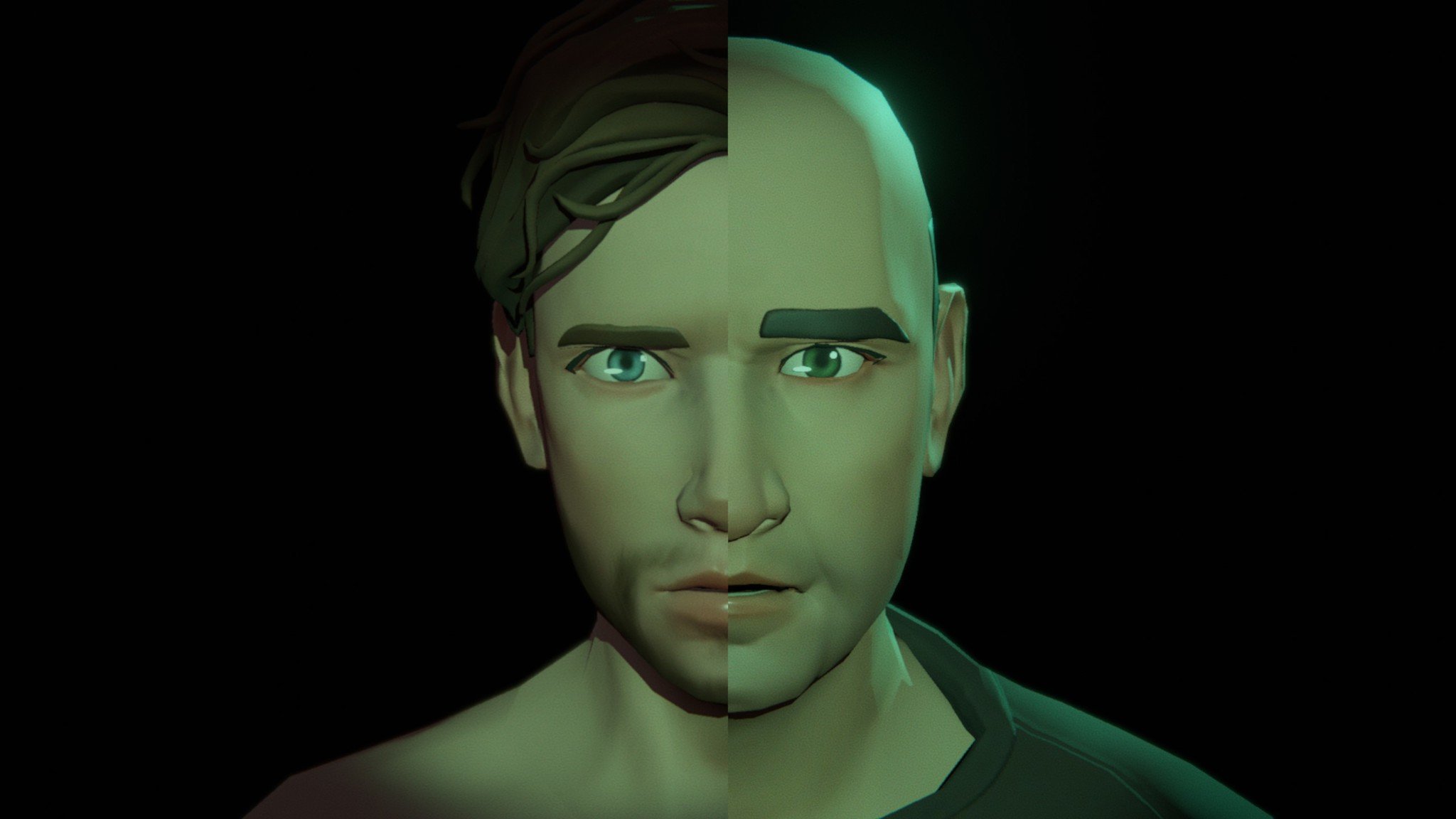
Last Stop tells the interconnected stories of John Smith, Donna Adeleke, and Meena Hughes, three very different people in varying supernatural predicaments. John ends up switching bodies with his neighbor Jack Smith after an abrupt interaction on the subway; Donna meets and falls in love with a mysterious stranger, and Meena … well, Meena is dealing with her own extramarital affairs and work issues in the most straightforward story of the bunch (until it isn't).
The intricate plotting and pacing is Last Stop's strength. The three stories feel superficially connected at first. The main menu shows the three sitting next to each other on a subway train, implying that they live at least on the same line. As the chapters go on, the player is slowly introduced to more connections. At first, the three stories intersect in small ways: Meena passes by John sitting on a bus bench, Jack is friends with Meena's workplace rival, and Meena's husband is Donna's teacher, just to name a few. However, as you play along and the pieces of each story fall into place, you begin to understand where it's all going and why these three were put together, and how they ultimately connect with the prologue. The chapters of each story vary in length, but all introduce some new plot point or detail that ramps up the stakes or draws you in.
All the latest news, reviews, and guides for Windows and Xbox diehards.
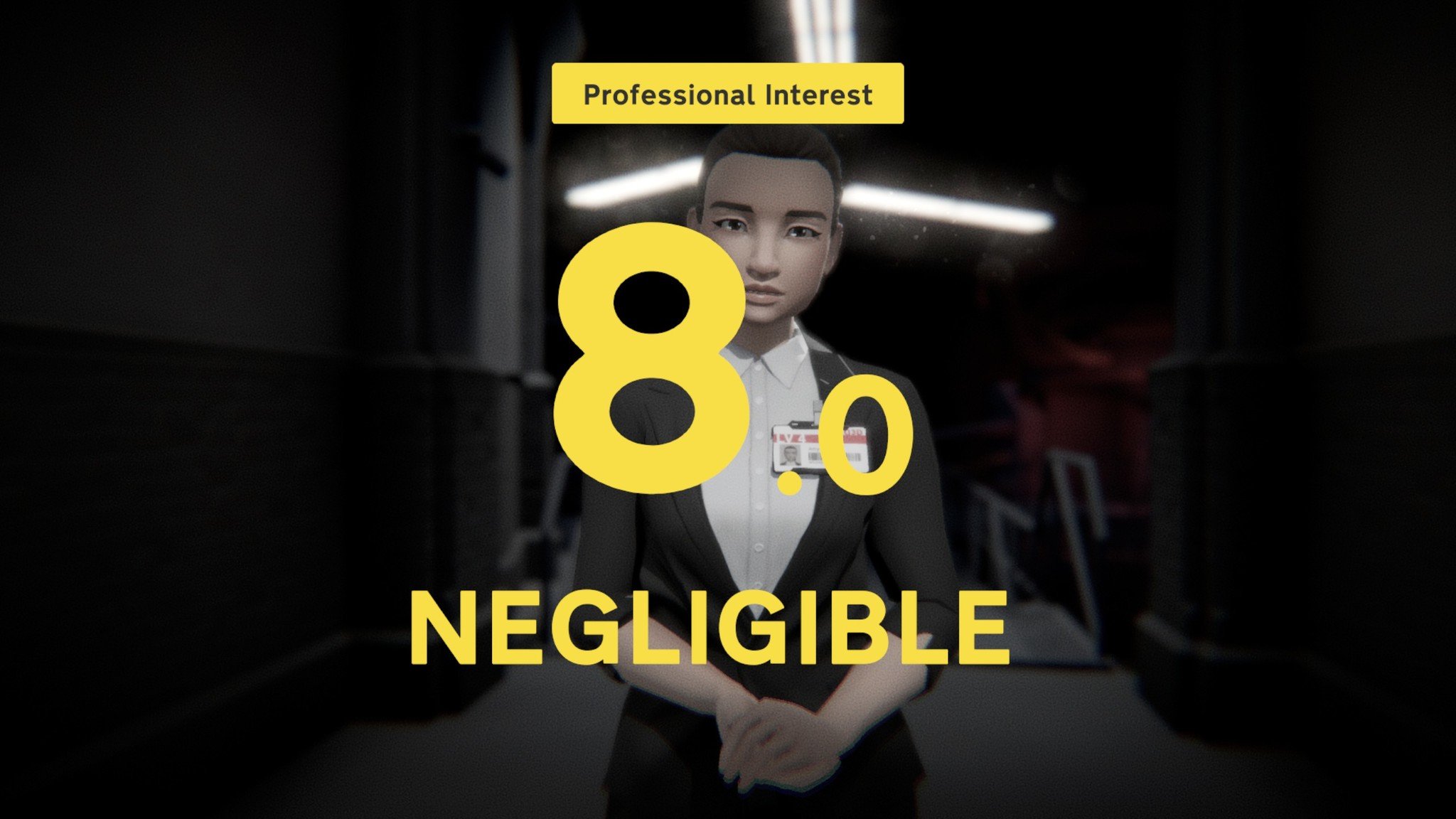
The addition of dialogue takes out a lot of the mystery of something like Last Stop, but it allows the studio to play around with different emotions in a way that Virginia didn't have the space to. Last Stop's writing swings from tragedy to comedy, but never wildly. Each of the three stories falls into a different genre; John's is a comedy, Meena's is a noir thriller, and Donna's is a supernatural teen horror, but jumping around between them doesn't feel jarring. If anything, hopping from one genre to the next allows Variable State to play around more and introduce new elements to the player. It's not enough to keep them on their toes, but it keeps the story feeling fresh.
The intricate plotting and pacing is Last Stop's strength.
It's a shame that a lot of clever dialogue is ruined somewhat by stilted voice acting, but if you can get past that, you'll be surprised how the game uses its formula to surprise you. Particular highlights include any time Meena has to analyze a situation by breaking down a person's posture or when Jack and John accidentally get involved with a psychic with a conspiracy podcast when trying to solve their predicament. These moments of levity work well against elements like Donna's story, which is arguably the darkest one, and moments towards the latter half of the game where the stakes become very real.
If Variable State they proved they can do uncanny well with Virginia, it also proved it could do a different kind of weird with Last Stop. While a lot of the story involves our characters trying to tackle relatable problems, it's interspersed with a rich and occasionally surprising paranormal mythology. In fact, the discussions you partake in are almost a distraction from that greater lore, which comes to a head at the end and takes you to the true last stop from the title. I sometimes wished that Last Stop spent more time with the weirdness surrounding these characters instead of the characters themselves, but letting them breathe makes the grander moments feel more exciting. Either way, it feels like a world that Variable State could make more games in.
Last Stop: What I didn't like
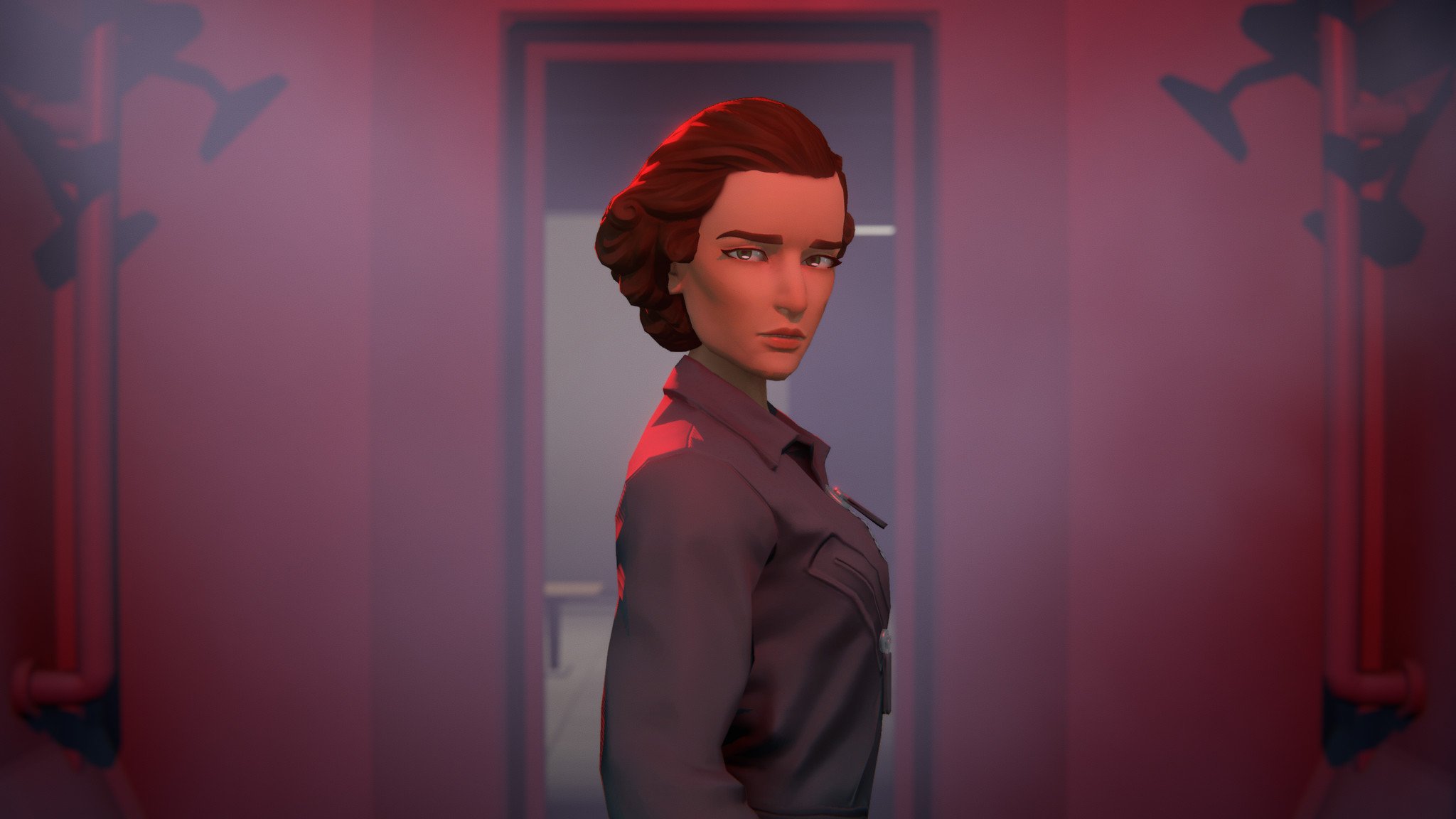
Last Stop has a strong identity, but there are a few things that felt like missed opportunities. For example, if Last Stop is a game that bases itself around dialogue trees, why does it feel like a lot of them don't have a true impact on the story? There are a couple of choices you make that do make a difference, with three large choices to make at the very end, but for the most part, it only impacts how somebody might respond back. Usually you're presented with three choices, and the game occasionally subverts that by giving you the same choice three times, but overall, the dialogue trees are just a bit of seasoning rather than the meat of the game.
Sometimes the choices aren't clear, either. There's nothing as off-putting in a choice-driven game like clicking on a reaction and having what the character says be seemingly unrelated. There were times I chose an option that seemed neutral and it turned out to be angry, for example.
As for how the game runs, the game itself is mostly clean, but there were a few moments where the animation stuttered or a model moved in an unnatural way. I saw one character, for example, mime holding a spoon when she should've been holding one, and another get stuck on an edge and walk around in a circle for a little bit. The incidents are small and don't take away from the full product, but are worth noting.
Last Stop: Should you play?
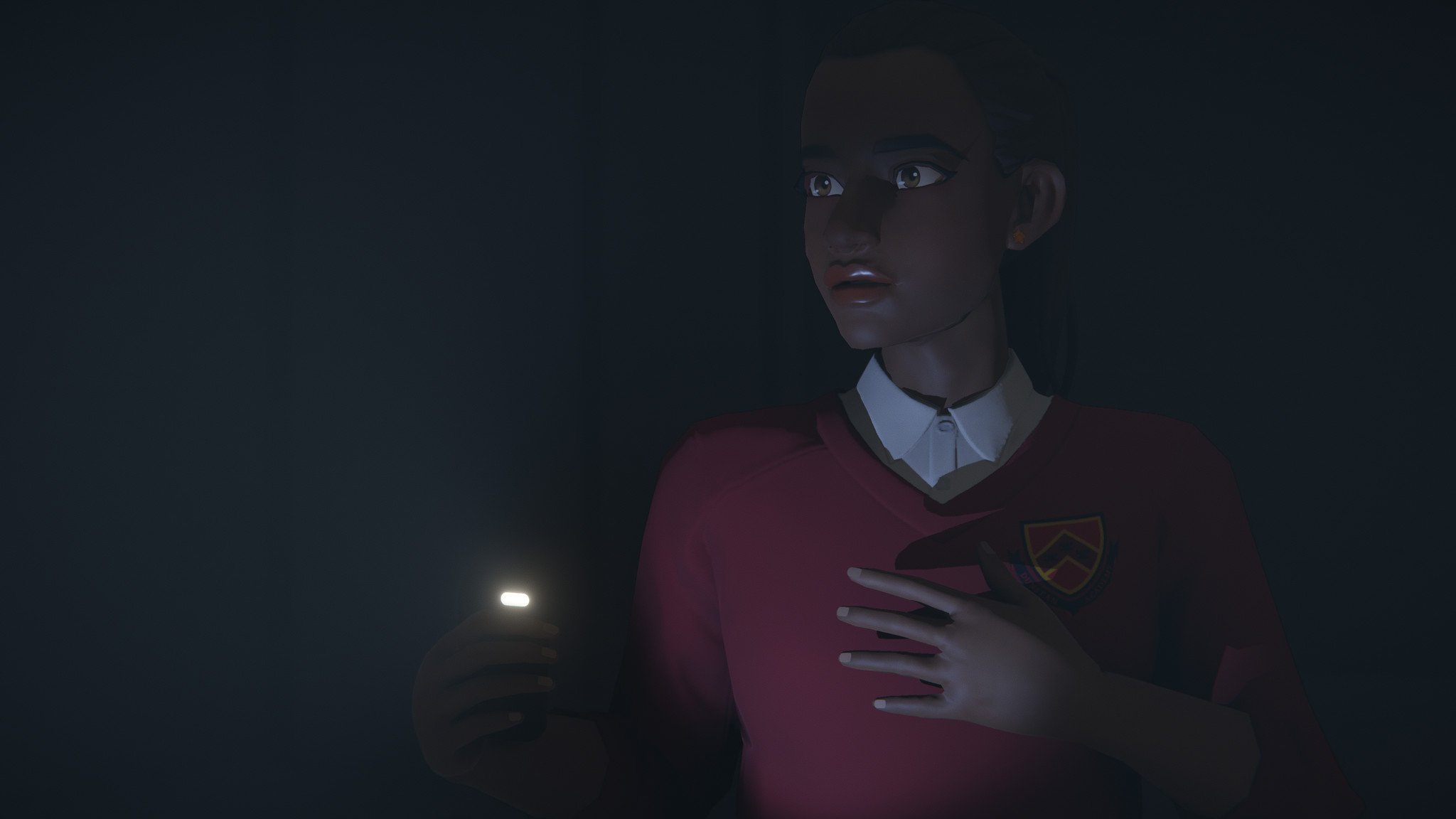
Variable State has shown with Last Stop that it excels at creating weird games, some of the best PC games, that engage with horror or supernatural tropes in interesting ways. Virginia proved it can play around with the uncanny, while Last Stop shows it has a sense of humor and wants to strive for larger science fiction ideas. It's not quite as quiet as its last game nor as introspective, but Last Stop is a Variable State game all the same.
Last Stop plays around with genre, so it has a lot of things to offer. Whether you like comedy or horror, the game has something for you. It doesn't always excel at what it tries to do, and things like stronger choice-making and voice acting could've better sold the three stories and the strengths of their interconnectivity. Because through all the weirdness and the glowing doors in the subway, Last Stop is out to make a point about the kinds of impacts we have on one another. Sure, it seeks to solve a mystery about what exists in London's subway tunnels, but it's also about the three main characters and how they interact with the people in their lives, their selfishness, and with a chance to change everything, if they'll do so. If you had the chance to change your life drastically, would you do it? After playing Last Stop, I'm not so sure.
Last Stop is out July 22 on Xbox (including Xbox Game Pass), PlayStation, PC, and Nintendo Switch.

Carli is the Former Gaming Editor and Copy Chief across Windows Central, Android Central, and iMore. Her last name also will remind you of a dinosaur. Follow her on Twitter or email her at carli.velocci@futurenet.com.
